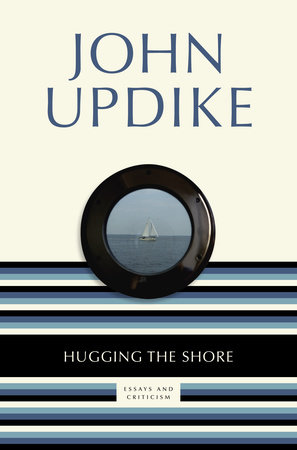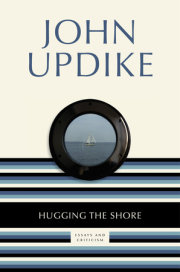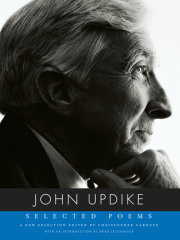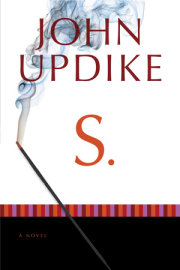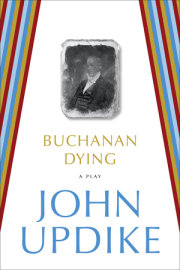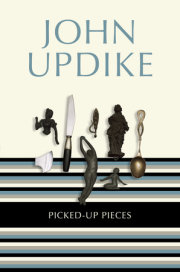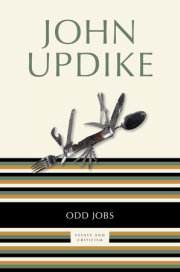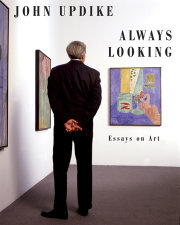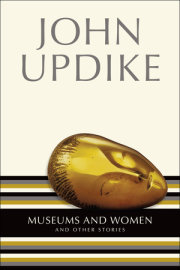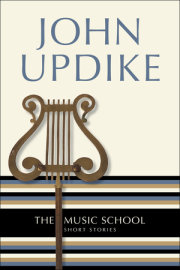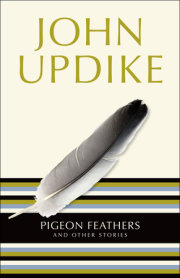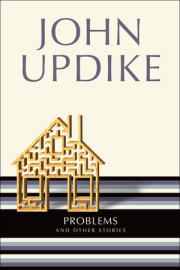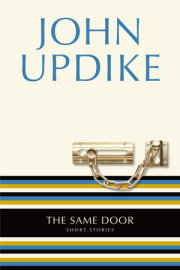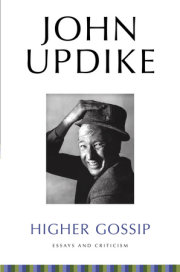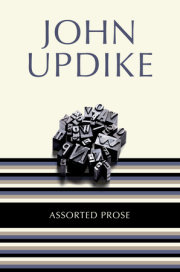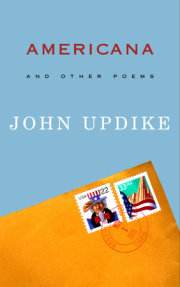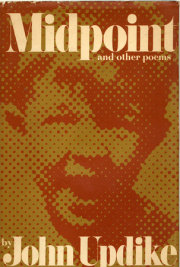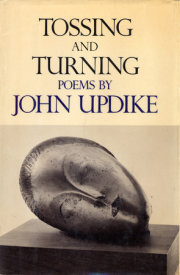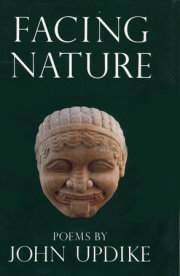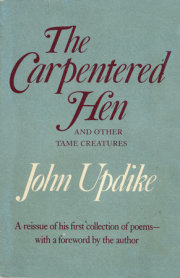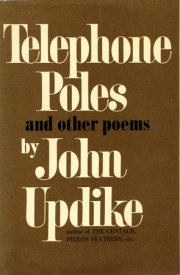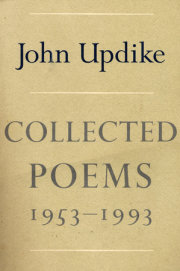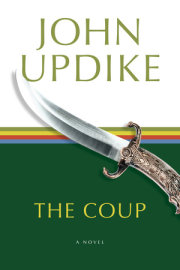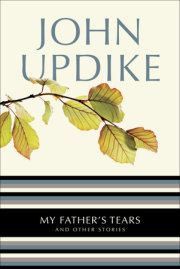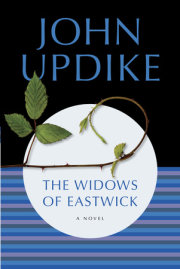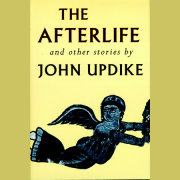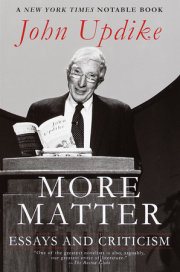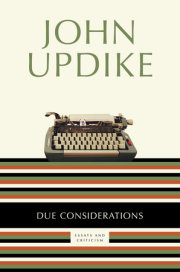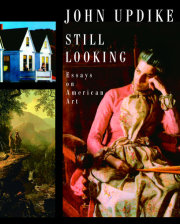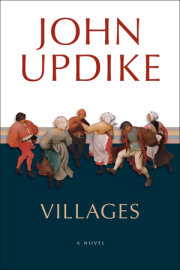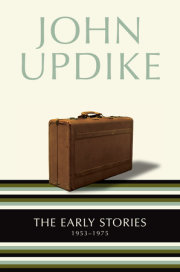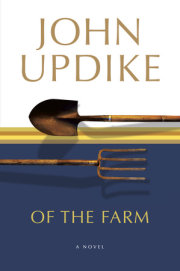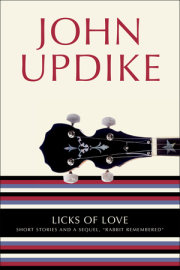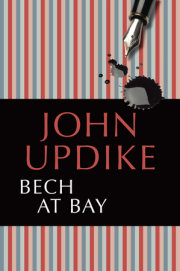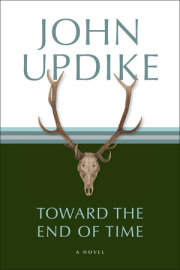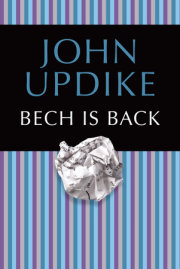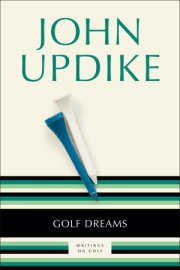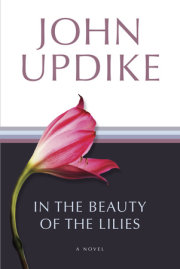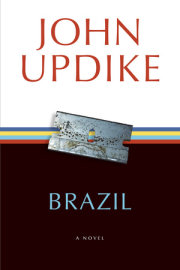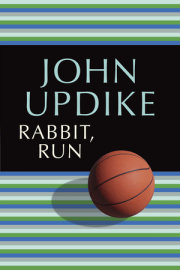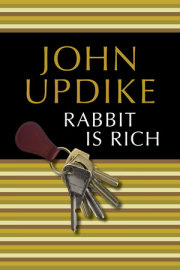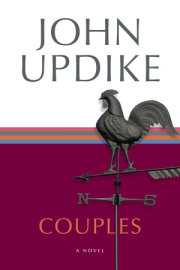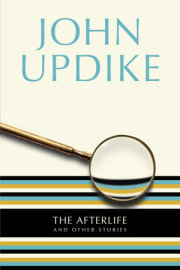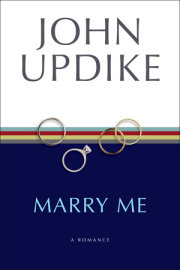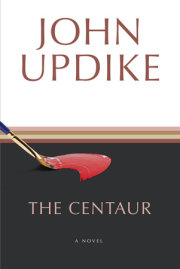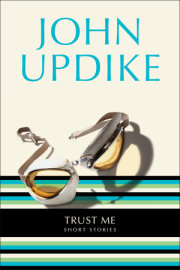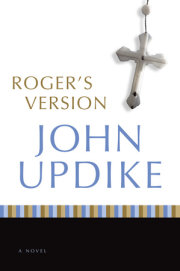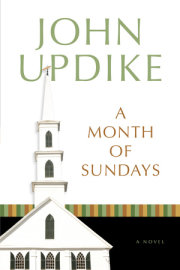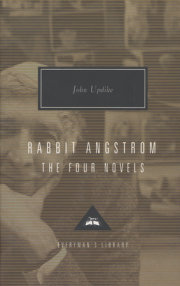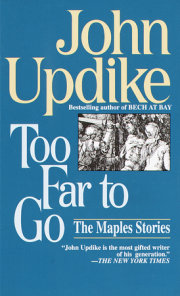INTERVIEWS WITH INSUFFICIENTLY FAMOUS AMERICANS
The Pal
THE PAL IS PALE, like water. He is everywhere, in different forms. On the golf course, he is present as a swing and a slice, then a swing and a hook. Or as the rattle of the ball into the cup, unexpectedly, from far away. He is a good putter, the pal.
At poker, he is inscrutable. He is a face above cards one cannot see. He raises the bet. What does this mean? Is he going high or low? If he loses, he will borrow money from one. If he wins, he will keep it. When he shows his cards, he has the cased King. Or he was bluffing and folds, scrambling his cards together in a quick exasperated little tent-shape, beside the tall golden cylinder of beer. He is most lovable then.
Look at that pal ski! Swish, swish, down the chute, over the moguls, away! He is not easy to keep up with, but one wants to. One wants to for the camaraderie of the ski lodge, his pale face ruddy above the steaming coffee mug. Or the camaraderie of the long drive home, in the chain of headlights, his eyes blinking, his head nodding, with sleepiness. A sleepy pal is a dear pal. Even were he to nod off and drive head-on into a trailer rig, it would be a good way to go, there would be no grudge.
At tennis is he less benign. He slashes, he wheels, he whaps an easy overhead into the net. “Come up to the net,” he insists. Fuck you, one thinks. Still, the parallel patter of sneakers on the clay is pretty, though the opponents lob over our heads, and we lose the set.
At parties, one never talks to the pal. In this he is like a mistress. He observes and he sulks. He dances only the slow dances, often with one’s wife. That, too, is a mode of palship. That, and calling one’s children “Butch,” no matter what their names.
Interviewers find him elusive, almost rude.
Q: Could you in a word or two describe the gratifications of being—how shall we put it?—a pal?
A: Meagre. Few.
Q: Would you advise young men, freshly graduated from college and as yet undecided about their careers, to follow in your footsteps and become pals?
A: No.
Q: What has been the principal ingredient, in your experience, of palship?
A: Beer.
Q: And its sustaining teleology and ambient essence?
A: Death.
Q: Thank you very much, sir.
A: Forget it.
Then he is on the phone, trying to set up a paddle-tennis date, or a fishing trip, or a rendezvous in a duck blind at 4 A.M. Refused, he sounds hurt. He has no other fun. He is at the bottom of one’s swimming pool in a snorkeling mask, picking up hairpins and pennies. He is silhouetted on one’s roof, adjusting the television aerial. One returns from a trip, and the dregs of his dinner wine are on the table, his pajamas are underneath the bed. Ambushed, he is unembarrassed. “Butch here cut his knee while you were gone.” What can one say? One says, “Have a beer.”
The pal is a mist, he is a puddle. He fogs the rearview mirror, he is a gratefully gulped glass of water at the kitchen sink. As at sea, there is a horizon of melancholy, which recedes, and cannot be crossed, though one sails for days, in stubborn silence, the rigging creaking, the waves slapping the prow, a single gull weeping off the stern. His beauty is, he opens up this horizon within oneself. For if he is your pal, you are his. The male desert within us is coterminous. He is a mirage.
One’s Neighbor’s Wife
WHAT IS THERE about this wonderful woman? From next door she comes striding, down the lawn, beneath the clothesline, laden with cookies she has just baked, or with baby togs she no longer needs, and one’s heart goes out. Pops out. The clothesline, the rusted swing set, the limbs of the dying elm, the lilacs past bloom are lit up like rods of neon by her casual washday energy and cheer, a cheer one has done nothing to infuse.
In certain party lights the mat slant of the plane of her cheek wears beneath the lamp the somber rose glow of earth seen from the window of a jet pouring west against the sunset; to fall would be death.
Her house is full of crannies, of cluttered drawers and dusty shelves, repositories of wedding gifts and high-school charm bracelets and snapshots of herself as a child. These are unimaginable treasures—bones of her flesh, relics her life has generated. One studies her husband wonderingly: how can he withstand such a daily pressure of bliss? His skull looks two inches thick, all around.
She touches her children, and they rotate in the oven of her love. Her dog, too, dumb sharer of her hours, is stroked and ruffled. Her hands, oval and firm, bear no trace (if one excepts the wedding ring) of awareness that they are sacred instruments—much like those Renaissance paintings wherein the halo of the Christ child, having dwindled from the Byzantine corolla of beaten gold to a translucent disc delicately painted in the perspective of a three-dimensional caplike appurtenance, disappears entirely, leaving us with an unexpectedly Italian-looking urchin.
Her conversation is inane, sublimely.
There is a scent to her, a scent to the sight of her in her clothes, that rustles free into the air when she moves, though her movements are brisk rather than voluptuous. Desire attaches, one notices, less to her person than to her surroundings, to the landscapes she walks through, the automobile she slides packages in and out of, the garden she tends, her crannied house, its curtains and rugs and towels—as though she were a sachet of lavender scent in a drawer of tumbled, cloudy fabrics.
Her person. She has freckles wherever one can see. A bikini reveals the demure little saddle of fat that pads the base of her spine. When she lifts her arms, shaved and powdered patches are revealed. What color would her pussy be?
A: My pussy is the color of earth, of fire, of air shuddering on the vein of a rock by the side of a stream, of fine metals spun to a curly tumult, of night as to the expanded eye of the prowler it yields its tints of russet and umber, subtle husks of daylight colors. Each hair is precious and individual, serving a distinct rôle in the array: blond to invisibility where the thigh and abdomen join, dark to opacity where the tender labia ask protection, hearty and ruddy as a forester’s beard beneath the swell of belly, dark and sparse as the whiskers of a Machiavel where the perineum sneaks backward to the anus. My pussy alters by the time of day and according to the mesh of underpants. It has its satellites: the whimsical line of hairs that ascend to my navel and into my tan, the kisses of fur on the inside of my thighs, the lambent fuzz that ornaments the cleavage of my fundament. Amber, ebony, auburn, bay, chestnut, cinnamon, hazel, fawn, snuff, henna, bronze, platinum, peach, ash, flame, and field mouse: these are but a few of the colors my pussy is.
Q: How can you bear to be the constant carrier of such splendor?
A: I don’t think about it most of the time. Just when I take a bath, and when Joe says something.
Q: That shmoe.
A: Think you could do better?
One’s neighbor’s wife’s life, not her womb, is the theatre wherein covetousness raves. One wishes to curl up on her furniture, to awaken to the dawns that break upon her windows, to see the eleven o’clock news on her set. Would it be the same old news? Impossible.
Copyright © 2013 by John Updike. All rights reserved. No part of this excerpt may be reproduced or reprinted without permission in writing from the publisher.

